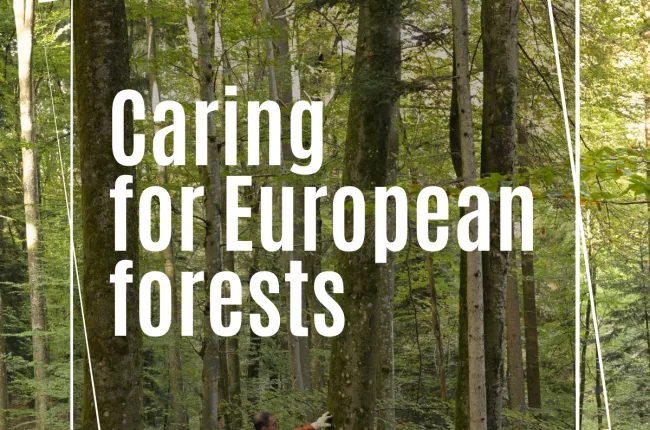Forests are the lungs of the Earth, offering a nurturing habitat for plant growth and serving as a primary oxygen reservoir. Healthy forests play a crucial role in mitigating climate change by acting as carbon sinks, absorbing billions of metric tons of CO2 annually while offering many other important ecosystem services.
Our forests provide immense ecosystem services, such as clean and fresh air and fresh water, non-wood forest products such as mushrooms, berries, nuts or medical plants and wood as raw material, protection of people, homes and infrastructures against natural hazards (avalanches, floods, rock falls, landslides), providing places for recreation and cultural services benefiting human well-being. Additionaly forests are providing livelihoods for nearly 1 billion people across the globe and offering jobs and strengthening social cohesion in rural areas with around 3,6 million people directly employed in the forest and forest-based sector in Europe alone.
In addition to these high-valued ecosystems services, by managing their forests in a sustainable way, forest owners contributed to: increasing forest area by 14.4 million ha equal to almost five times the size of Belgium; Increasing the carbon stock in EU forests by 48%; Providing a renewable raw material that offers sustainable alternatives to fossil-based materials and energy needed in our daily life as part of an EU bio-based economy; Increasing long-term carbon storage in wood products; Preserving and enhancing biodiversity by providing various habitats for fauna and flora ; Increasing the volume of wood by 8.5 billion m3, including high-quality wood for long-life uses;
Forest owners are supportive and attentive to forests and forestry research and innovation, and they closely follow and apply findings at their own scale. Research and innovation in forestry is progressively developing creating possibilities to see and use trees in many different ways.
This has led to techniques to extract different tree components and transform the raw materials into a wide range of innovative products. Materials derived from forests and trees are being developed as sustainable substitutes for plastics, building materials, biobased clothing, batteries, medical applications and even in frames for satellites and many other everyday items.
At the same time, rapidly evolving drone and satellite technology can be used in addition to in-field techniques for monitoring and managing forests, vegetation mapping and inventory, detecting and fighting fires and monitoring ecosystems, etc.
Over the last decades, forest owners have managed their forests with multifunctional objectives to meet society’s numerous and changing demands. Continued improvement is always needed and we are eager to evolve, innovate and adapt.
Sustainable forest management is a dynamic concept, ever-evolving with our knowledge and understanding of forests. Therefore, we, the forest owners, commit to:
- Continuing to optimise sustainable forest management.
- Contributing to mitigate and adapt to climate change.
- Strengthening cooperation with the scientific community.
- Enhancing cooperation with the whole value chain.
- Mobilising more forest owners to manage their forests.
- Improving communication towards the public.
- Fostering links between young and old, rural and urban, and between different socio-economic classes.
Discover our Manfesto to learn more about Forest Owners' vision, achievements, commitments and requests:

The “International Day of Forests” was first established by the decision of the United Nations General Assembly on 28 November 2012. It is celebrated every year on March 21st, uniting two international commemorations: the “World Forestry Day” and “Forest Day”.




